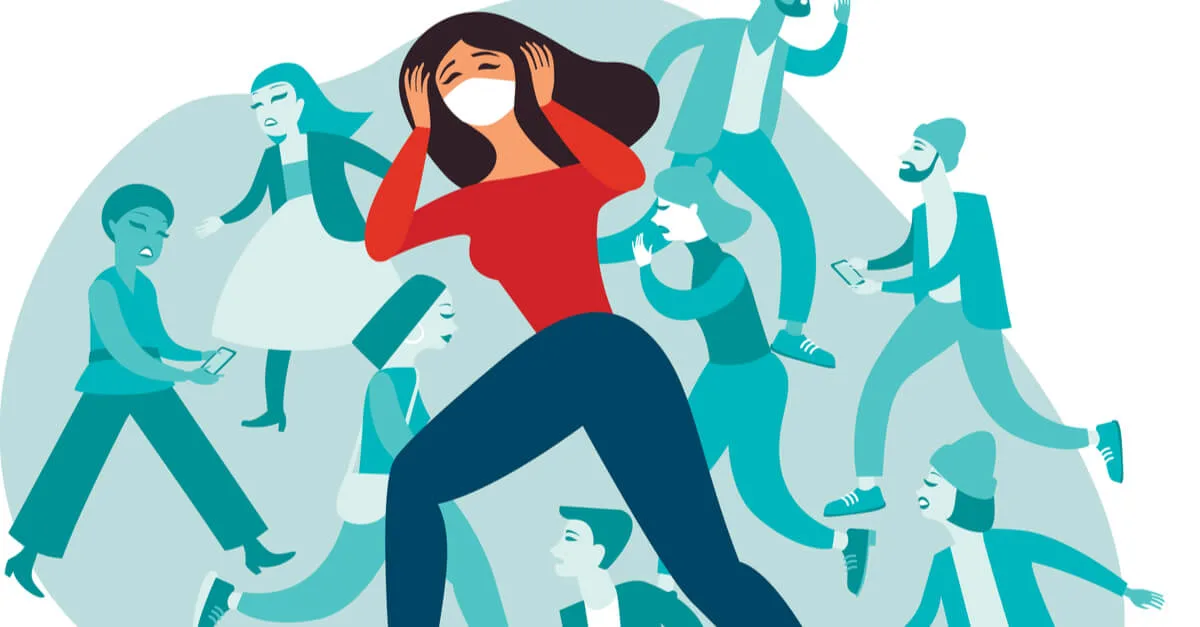
#image_title
#image_title
It is important to manage stress in order to adapt to the changing lifestyle that accompanies living through a pandemic.
Strong emotions, and even physical reactions, are a natural response to traumatic events like a natural disaster or pandemic. There’s no right or wrong way to feel or act, and your reactions may change over time. That’s why it’s important to understand your responses during stressful events—so that you can better manage what you’re feeling and recognize when you may need the support of a mental health or medical professional.
Look for these common reactions to traumatic events, now and as the COVID-19 pandemic evolves. Signs of stress:
- Mood swings and intense feelings, including fear and worry about your own health and the health of your loved ones, sadness, anger, guilt, and disorientation
- Denial, detachment or avoidance
- Difficulty concentrating or making decisions
- Irritability, strained relationships and conflicts with family, friends and co-workers
- Changes in your normal sleep or eating patterns
- Soreness, nausea, head or stomach aches
- Elevated breathing, heartbeats, and blood pressure
- Sensitivity to unusual sounds, smells and changes in your environment
- A worsening of preexisting chronic or mental health conditions
- Increased use of alcohol, tobacco, or other drugs
It is important to manage stress in order to adapt to the changing lifestyle that accompanies living through a pandemic. Caring for yourself, staying connected and reducing stress can help.
Remember, caring for yourself is not being selfish. Taking the time to protect your own physical and mental health ensures you have the resources to take care of others. Here’s some tips on how to do that:
- Get the 3 goods: Good foods, a good night’s sleep and a good amount of exercise.
- Relax your body: Take deep breath, stretch and exercise, meditation or spiritual activities.
- Do something you enjoy: Eat a good meal, read, talk to family and friends.
- Set boundaries: Don’t let the pandemic take over what you read, watch, or talk about. And don’t be afraid to ask friends and family to talk about something else.
- Avoid negative outlets: Find healthy ways to process your emotions. Avoid self-medicating with alcohol, drugs, or risky behaviors.
Most importantly, do not hesitate to reach out to medical professionals.
Politics

The Republican war on Medicare raises the stakes in 2024
Nearly 1.3 million Wisconsinites rely on Medicare benefits—benefits they spent decades paying into, with the promise that the program would be there...

Opinion: Donald Trump’s attacks on abortion rights puts politicians between doctors and their patients
In this op-ed, UW-Madison Medical Student, Charlotte Urban, discusses Trump’s attack on abortion rights and health care, emphasizing the importance...
Local News

Where to buy farm-fresh eggs in western Wisconsin
There’s nothing better than eggs from a local farm. Of course, they taste fresher and last longer, but the best part is that you’re supporting a...

13 local bookstores every Wisconsin reader should know
Whether you’re sitting outside enjoying beautiful weather or curling up inside during a snowstorm, it’s always a great time to crack open a book....




